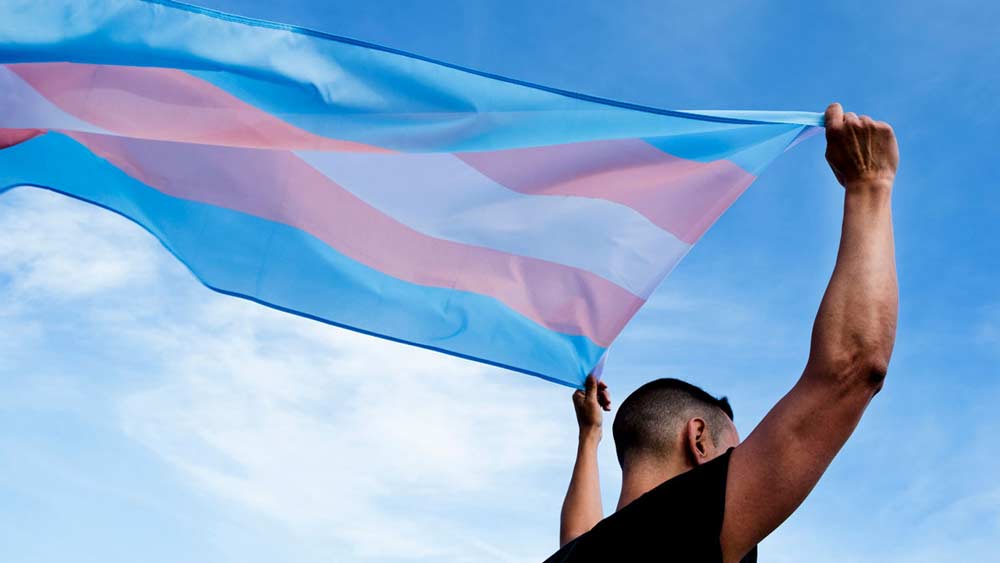
March 4, 2017
Questions of Police Misconduct, Tragedy and Lack of Closure in Case of Unsolved Trans Murder
Maria Dominguez READ TIME: 4 MIN.
In light of today's social climate surrounding allegations of police brutality, one cold case from 2002 may merit a second look. The unsolved murder of Franklin Freeman, who performed drag as Aretha Scott, was suspected to involve the police. Freeman died just five days before he was scheduled to testify against a member of the Charlotte-Mecklenburg Police Department (CMPD).
The case's unsolved nature remains a sore spot for the friends and family of the late diva.
"We need to get closure," said Terry Burris, who performed as Tiffany Storm alongside Freeman at the now-defunct gay club Oleen's. "Nobody ever really investigated."
Burris befriended Freeman decades before his death and describes Freeman as "very fun, energetic, the life of the party. Just a very happy-go-lucky person."
Although Freeman was beloved by many, his history is not without blemish. Known to engage in sex work while dressed as a woman, Freeman was doing just this when the first sign of trouble occurred. On Jan. 8, 2002, he got in the car with the wrong person - a CMPD officer named Michael Marlow.
But the incident wasn't as straightforward as a simple arrest. Marlow, a detective with CMPD's vice squad, had come from a drinking party in the police parking deck and still had beer in his car. Creative Loafing's David Aaron Moore (a former qnotes editor) reported Freeman's and Marlow's differing accounts of the incident, but it was Freeman's account that CMPD accepted as truth.
According to Creative Loafing, soon after Freeman entered the car, Marlow spotted a police patrol car and ordered Freeman to leave. Freeman refused unless Marlow paid him $20, a demand that the late queen freely admitted to police.
"After a heated verbal exchange, Marlow pulled out a gun and shot at Freeman once," Moore wrote in a 2014 article rehashing the incident. "He then put the car in reverse and backed into a fire hydrant. Freeman snatched a couple of beers as he jumped from the car and ran. Marlow fired at him again as Freeman fled."
But Marlow called for back-up, and officers M.H. Mack and D.J. Aldridge arrived on the scene, found Freeman and arrested him on the charge of assaulting an officer. The charges did not stick; eight days later Freeman was released from jail. Marlow resigned. Mack and Aldridge were terminated, and their supervisor, Sergeant Carl Boger, was suspended for 30 days.
After receiving a letter of apology from the police chief on April 22, Freeman was scheduled to testify against Boger at an appeal hearing.
"[Freeman] was nervous about that," Freeman's former boss, Danny Watson told Creative Loafing. "In fact he was very nervous. He admitted to me that he was afraid for his life."
Terry Burris, who refers fondly to Freeman by his drag nickname, "ReRe," confirms Freeman's fear leading up to the hearing.
"To them she was nobody, but she was about to blow the whole thing out of the water," Burris told qnotes. "She told me, she said 'if I come up dead, they did it.' "
Five days before the hearing, Freeman did indeed meet his end. At 10:30 p.m. on June 2, 2002, Freeman was found shot on the corner of Church and Liddel Sts. The single bullet had severed his left femoral artery and vein. He bled to death within minutes.
Although CMPD denied police involvement in Freeman's death, they didn't seem overly concerned with finding out who did fire the shot.
"[CMPD] definitely mishandled it," Burris said. "I don't know if that police officer, who lost his job and his family, I don't know if he's ever been investigated."
Creative Loafing's Tara Servatius was equally suspicious. In her column "Citizen Servatius," the author commented on the case with cutting criticism.
"Sure, the department fired a handful of officers over the events that led up to the January 8 clash between Marlow and Freeman. Nice public relations move, but I'm not impressed," Servatius wrote. "There should be an outside investigation and the city should pay for it."
But no outside investigation ever occurred. Freeman's murder remains unsolved, almost 15 years after it happened. Friends of the victim still have questions.
"The weekend he was killed was the weekend before he was set to testify," Watson said. "How coincidental can that be?"
"They were in the home stretch of getting a settlement from the city," Burris said, referring to Freeman's legal case regarding his unjust imprisonment. "They need to find out what happened. They never really investigated...Whatever happened to that policeman?"
Marlow's past before the incident with Freeman raises further questions. In 1996, as a patrol officer, Marlow shot and killed an unarmed motorist. He was never charged and continued to climb the CMPD career ladder. He was a detective on the vice squad when he met Freeman.
"The point is that Franklin Freeman bled to death from a shot to his leg and no one seems to consider it a priority to figure out who put the bullet there," Servatius wrote in 2002. "Bury what you will, but this one I don't think the department will get away with."
Yet questions linger. The case is unsolved. Several emails to CMPD requesting comment on the case have gone unanswered. How should the people who loved Freeman deal with the wound of loss never healed by closure?
"She was always willing to help people," Burris reminisced. "She was always just a lot of fun and a good person. I think that's how she'd want to be remembered."







